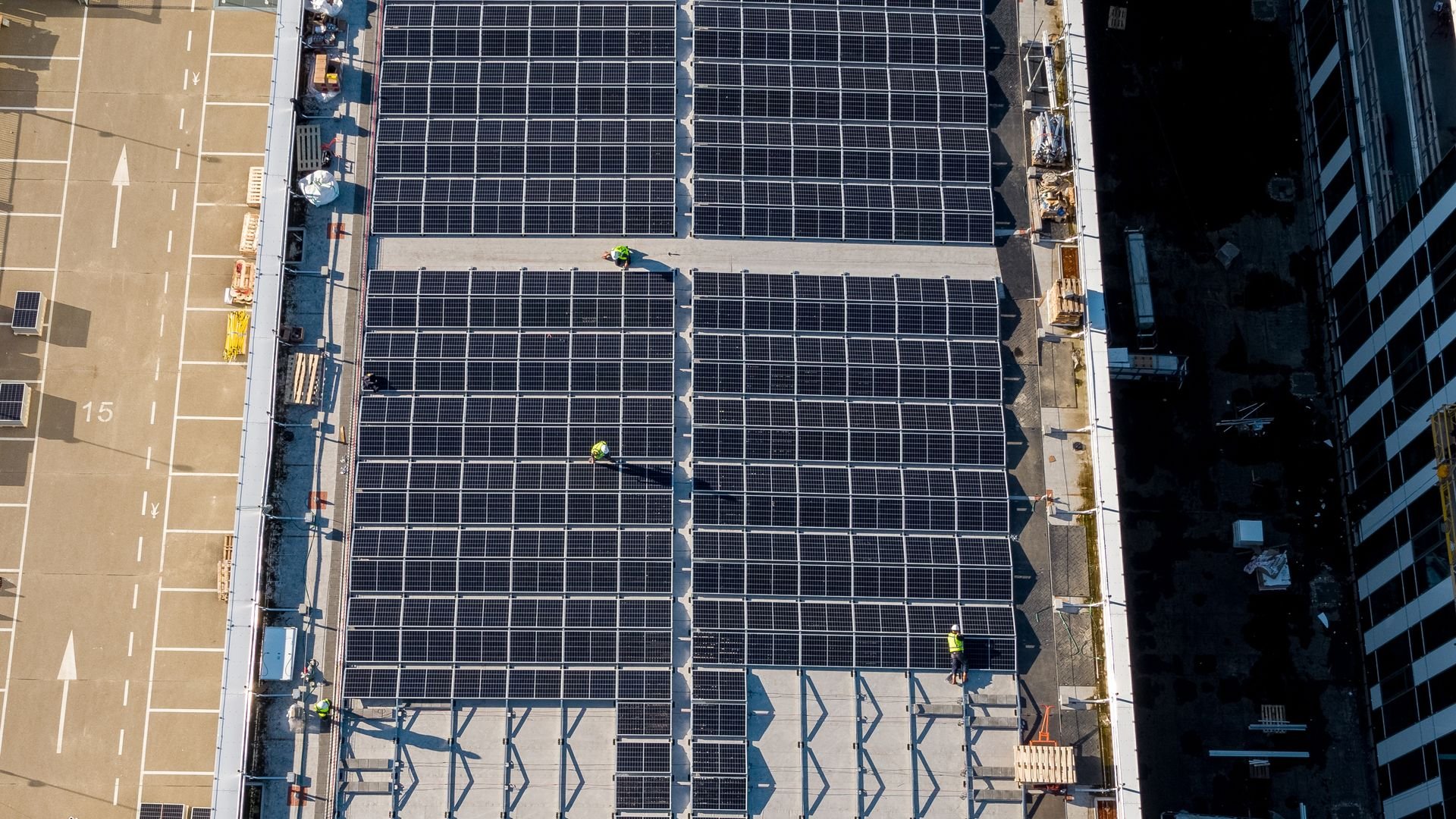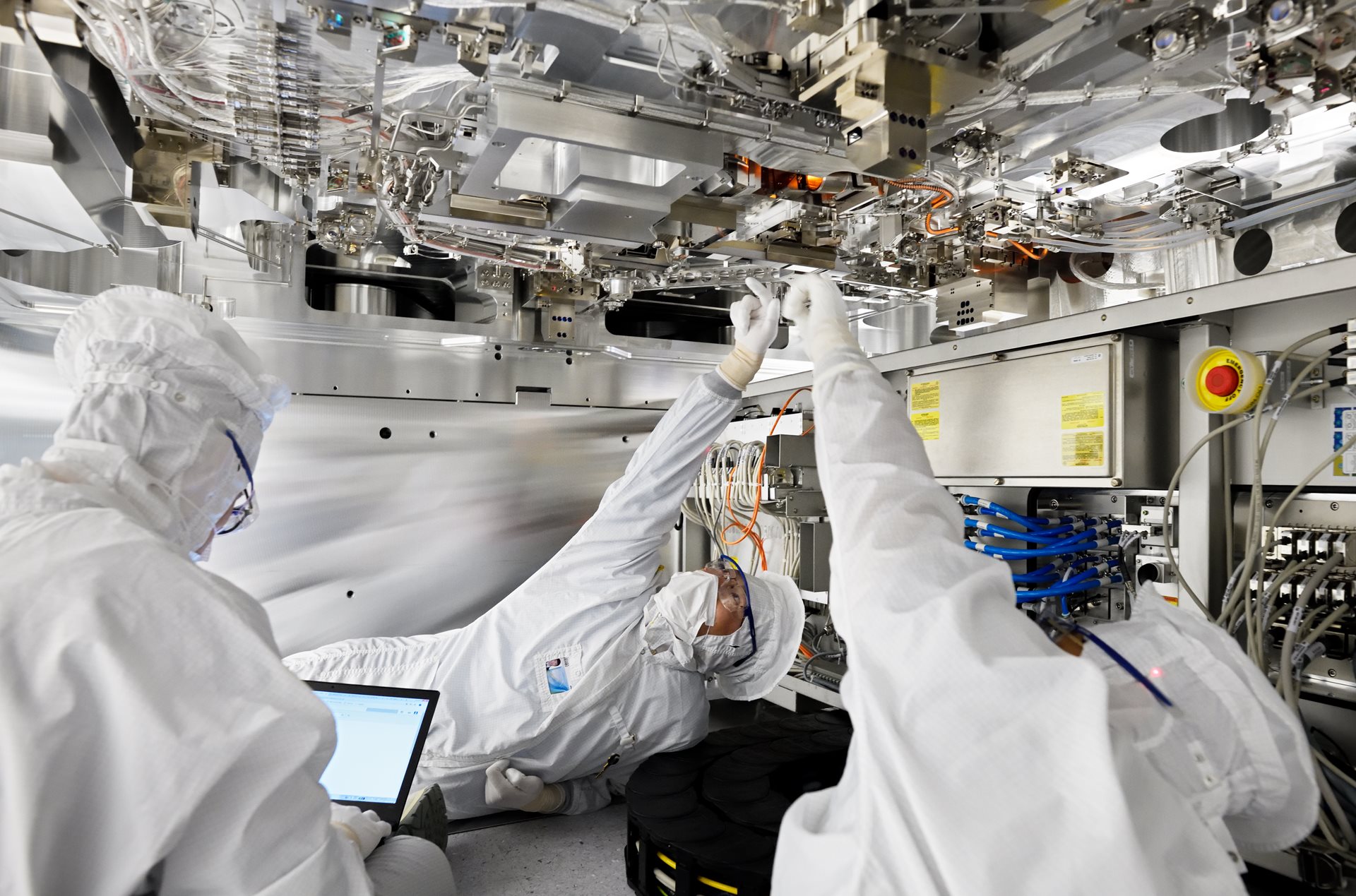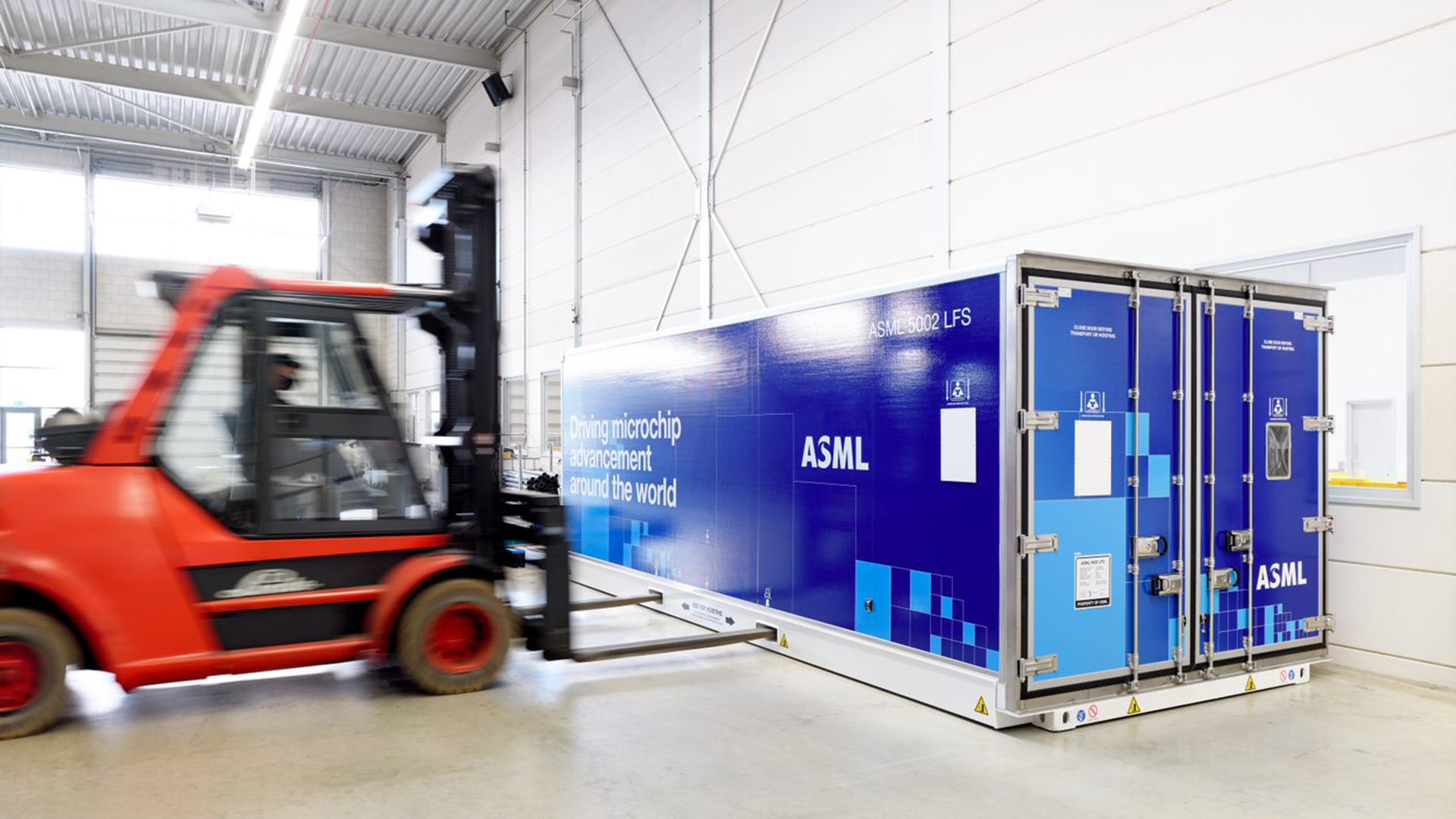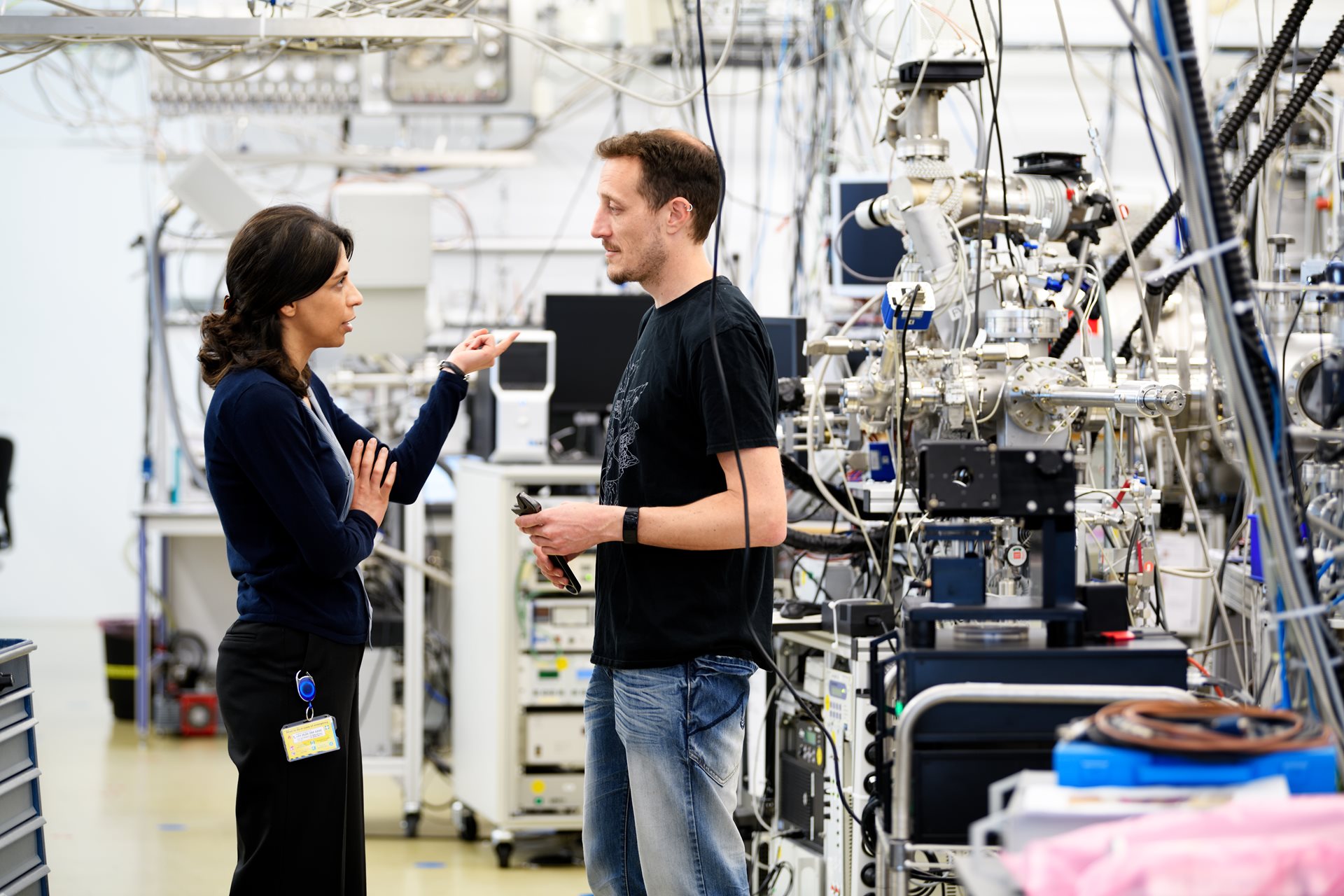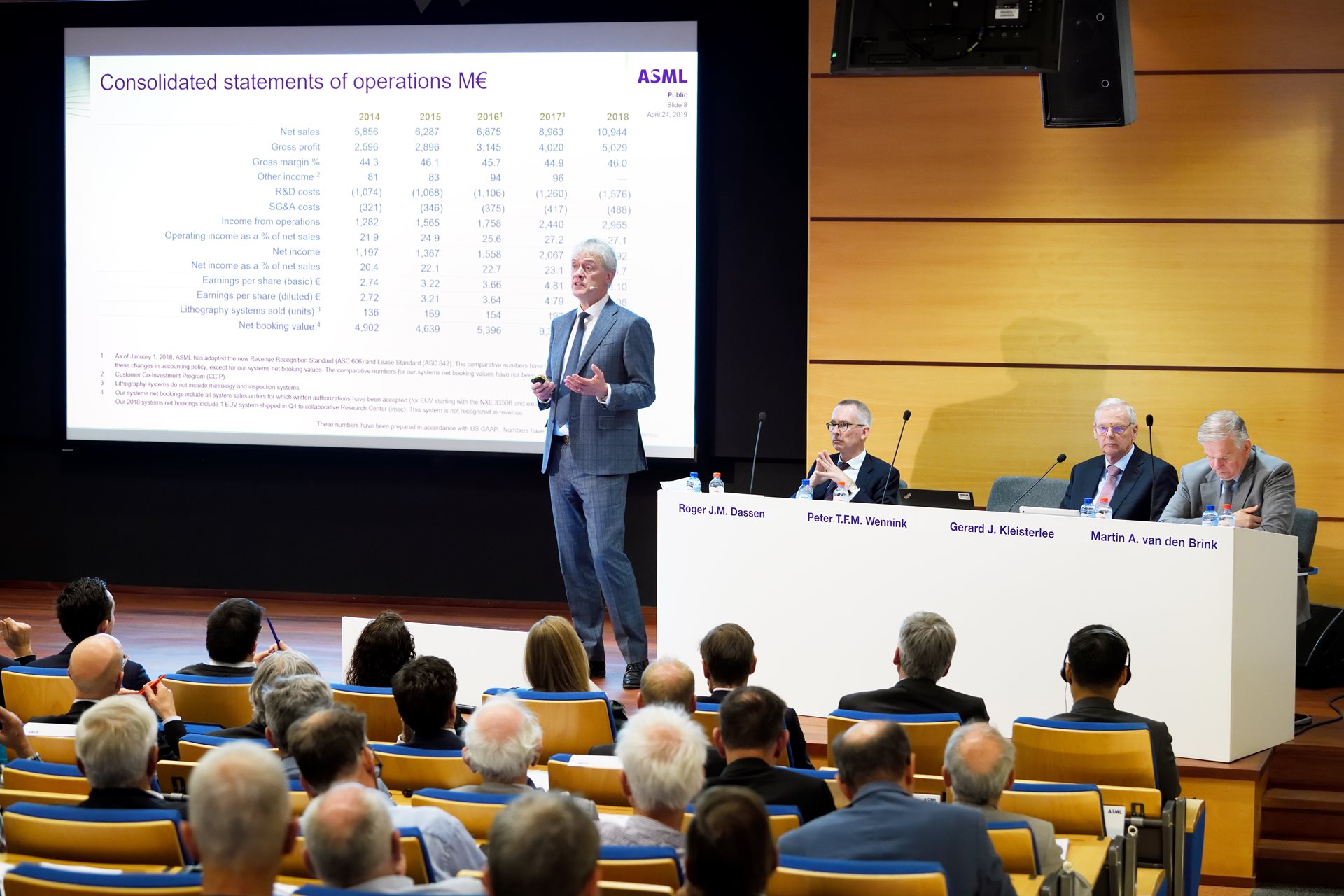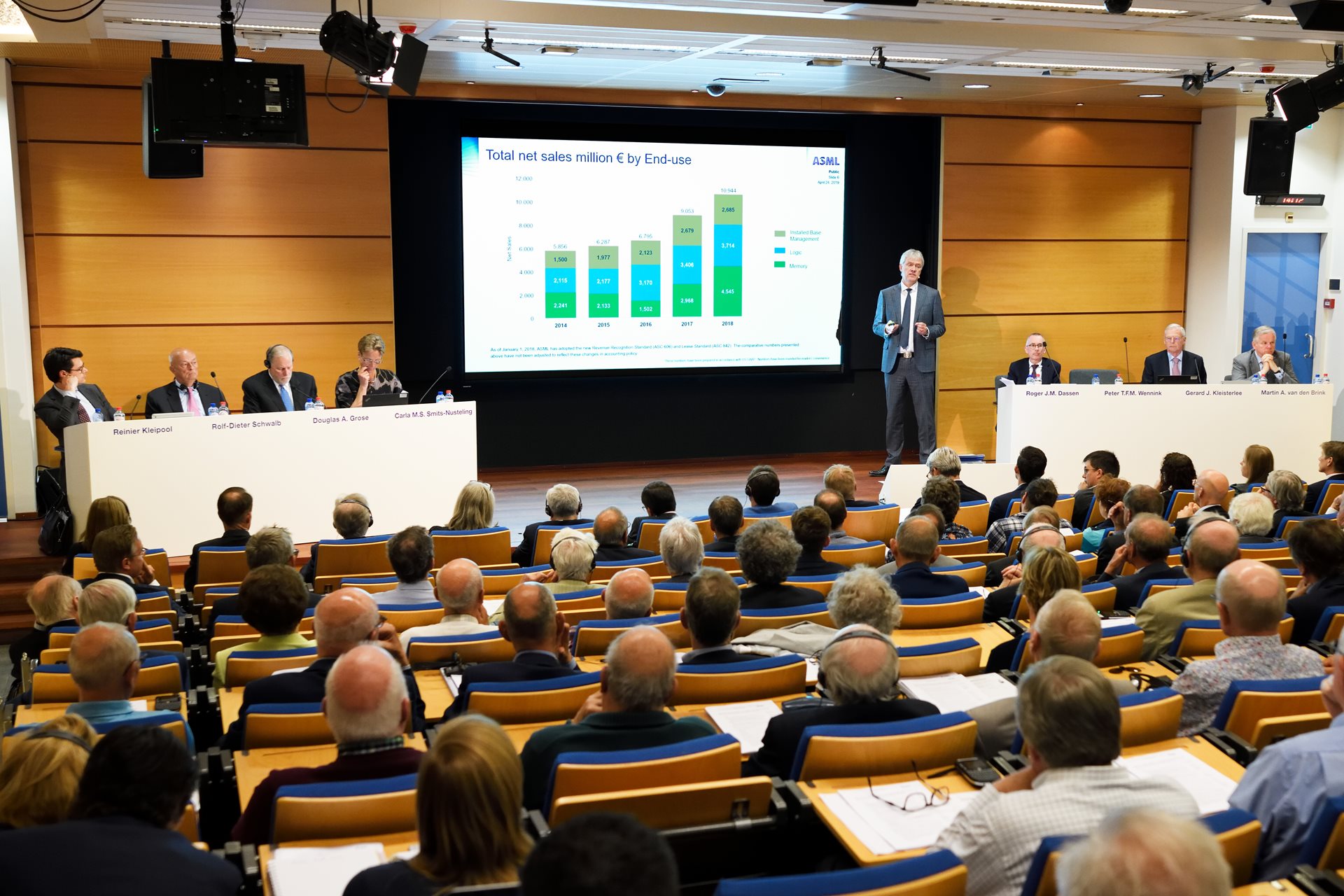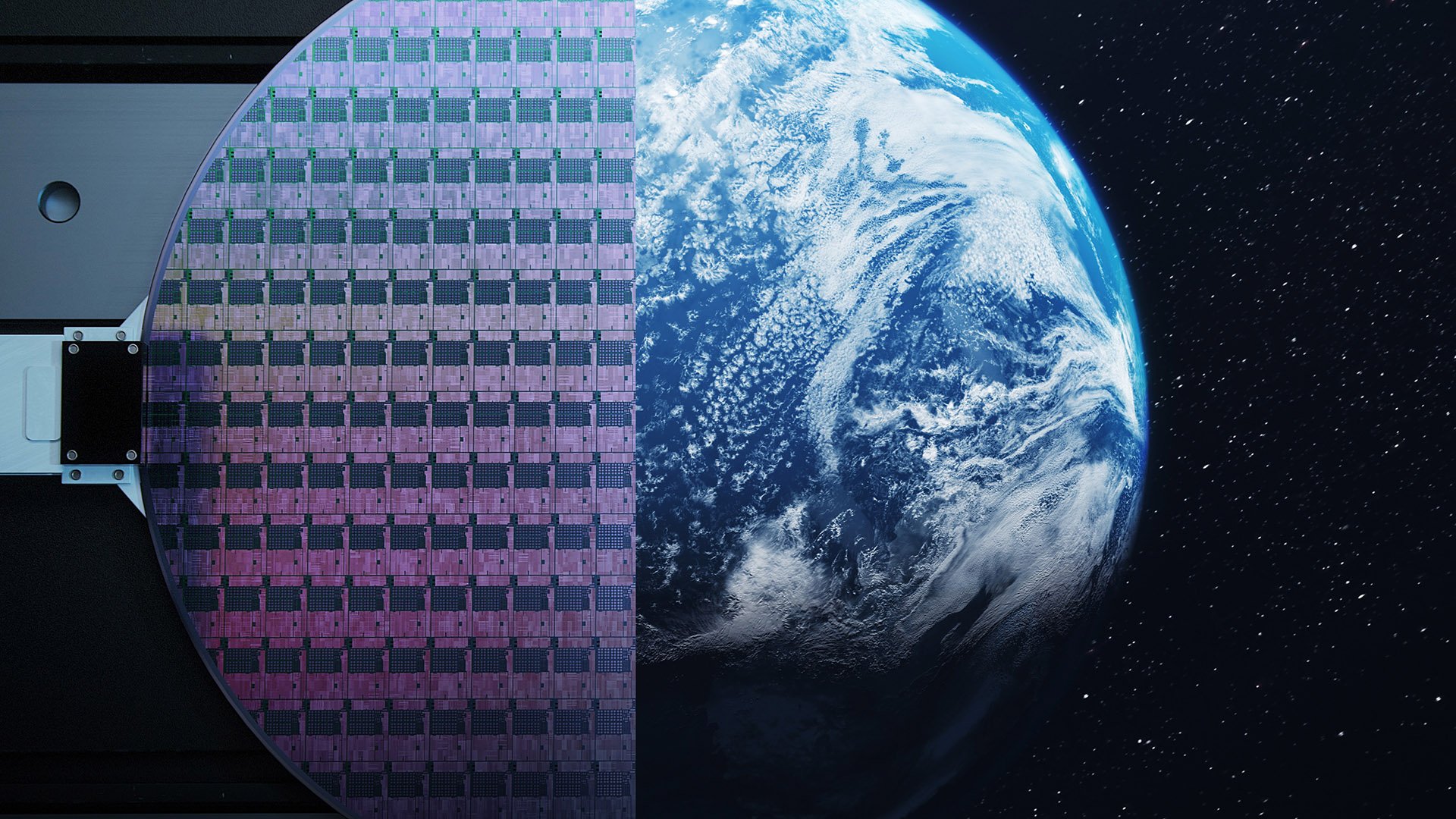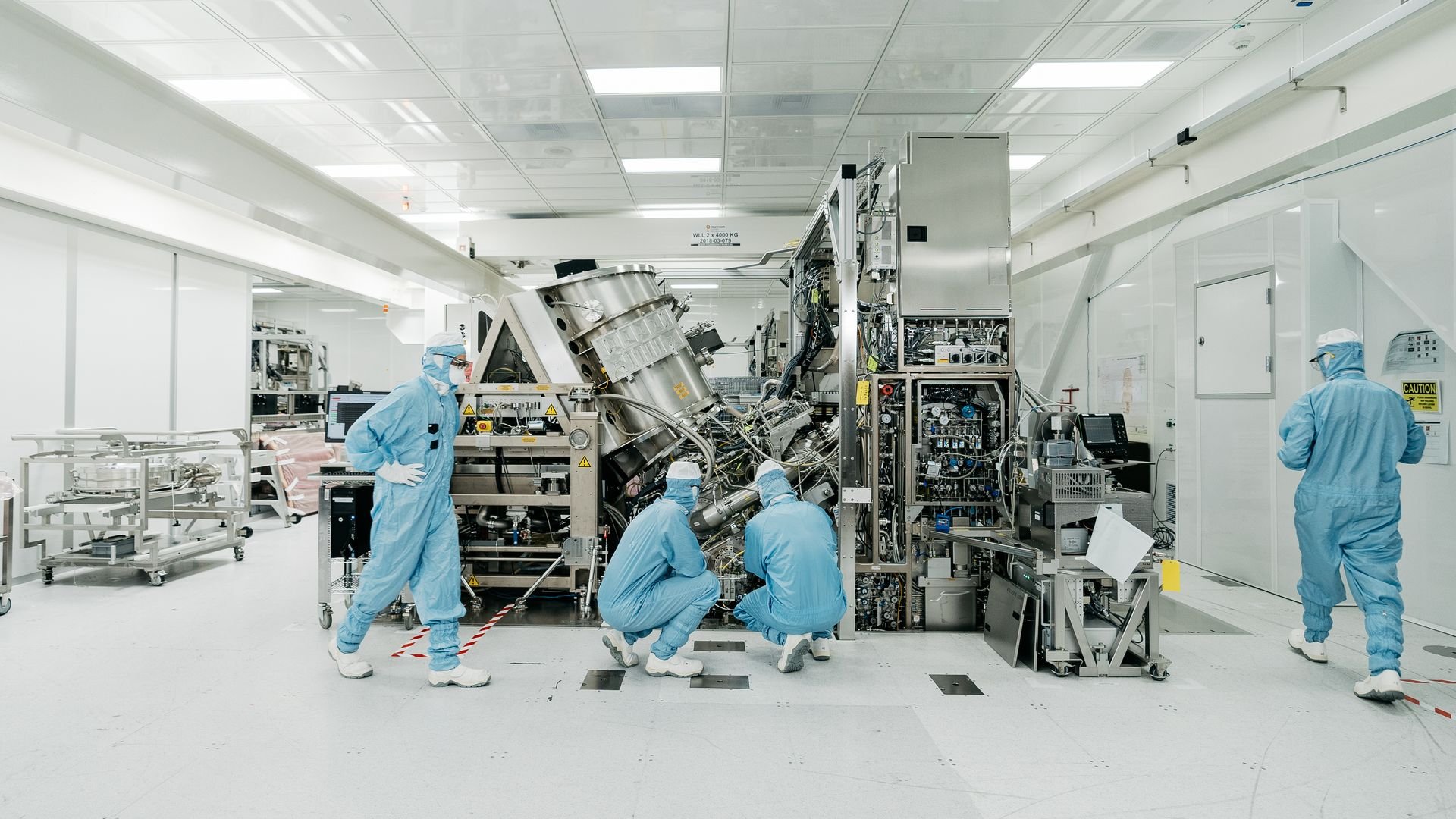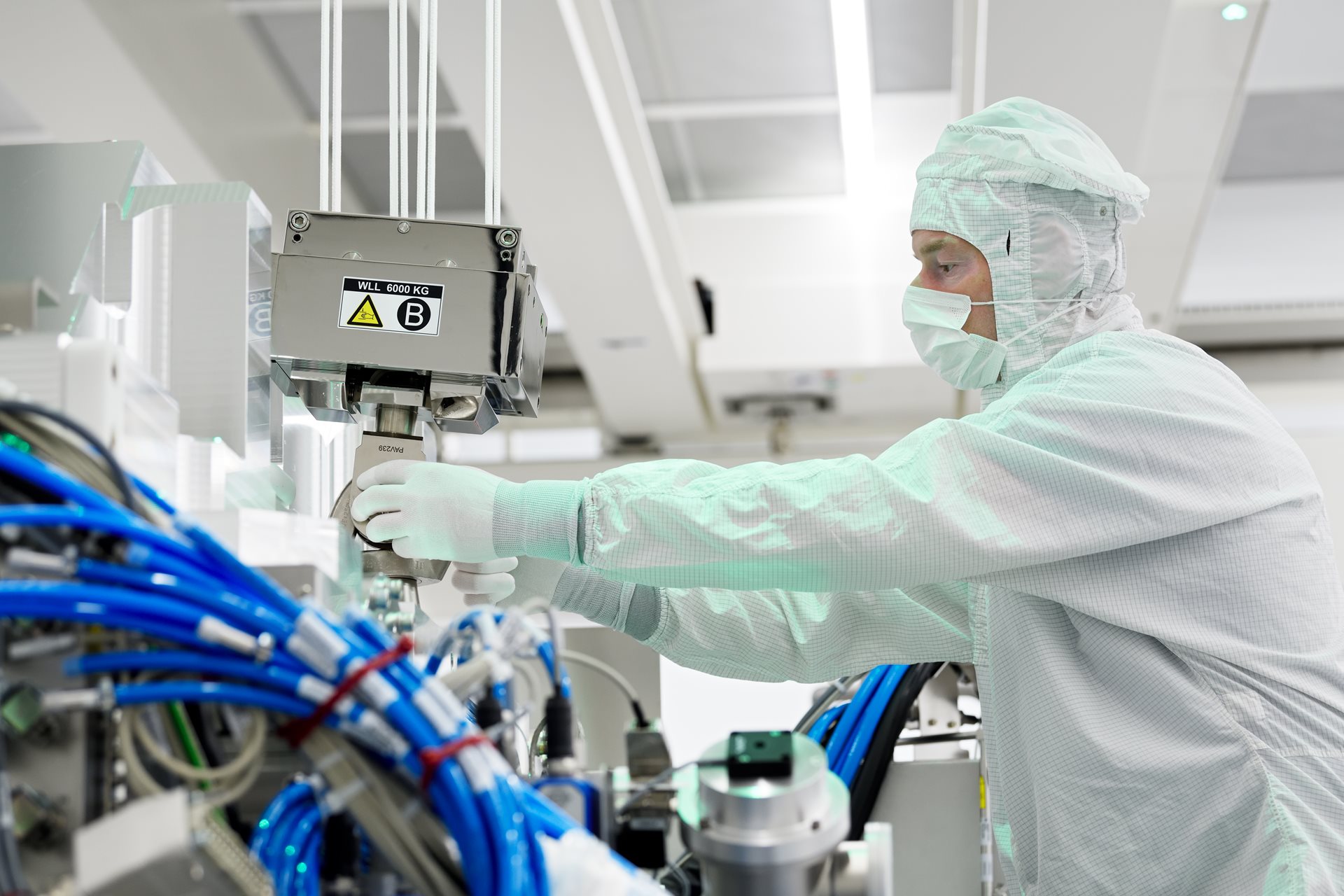Our target is to achieve greenhouse gas neutrality across our value chain by 2040.
The growing demand for enhanced chip functionality means that the complexity and energy consumption of the overall microchip patterning process is increasing. Limiting global warming in line with the Paris Agreement to 1.5°C needs accelerated and increased action. Therefore, we are aiming for greenhouse gas neutrality (GHG) across our value chain by 2040, while energy demand is rising.
Reaching this target is a complex challenge that can only be achieved by working closely with our partners, suppliers, customers and other stakeholders. We are one of the founding members of the Semiconductor Climate Consortium, which focuses on speeding up industry value chain efforts to reduce greenhouse gas emissions.
Toward greenhouse gas neutrality
We want to reduce our climate impacts, working closely with our partners and peers in the entire value chain, in our own operations together with our suppliers, in our customers’ production processes, and through reducing the energy used by semiconductors in operation by enabling scaling.
As part of our journey to greenhouse gas neutrality, we are a signatory to the Science Based Targets initiative (SBTi) and we have SBTi-approved near-term targets for 2025, in line with the 1.5°C scenario. We aim to obtain SBTi approval for our 2040 gross targets, which implies:
- Reducing our absolute scope 1 and 2 GHG emissions by 90% compared to our base year 2019.
- Reducing our scope 3 GHG emissions intensity per €m gross profit by 97.0% compared to our base year 2019
Across our manufacturing and buildings: (scope 1 and scope 2): Greenhouse gas neutral by 2025
We aim to achieve our target by reducing energy consumption across our operations (buildings and manufacturing), using renewable energy and compensating CO2 emissions.
Business travel and commuting (scope 3): Greenhouse gas neutral by 2025
We’re focused on developing sustainable business travel and commuting options and working with employees to encourage, incentivize and support changing commuting habits.
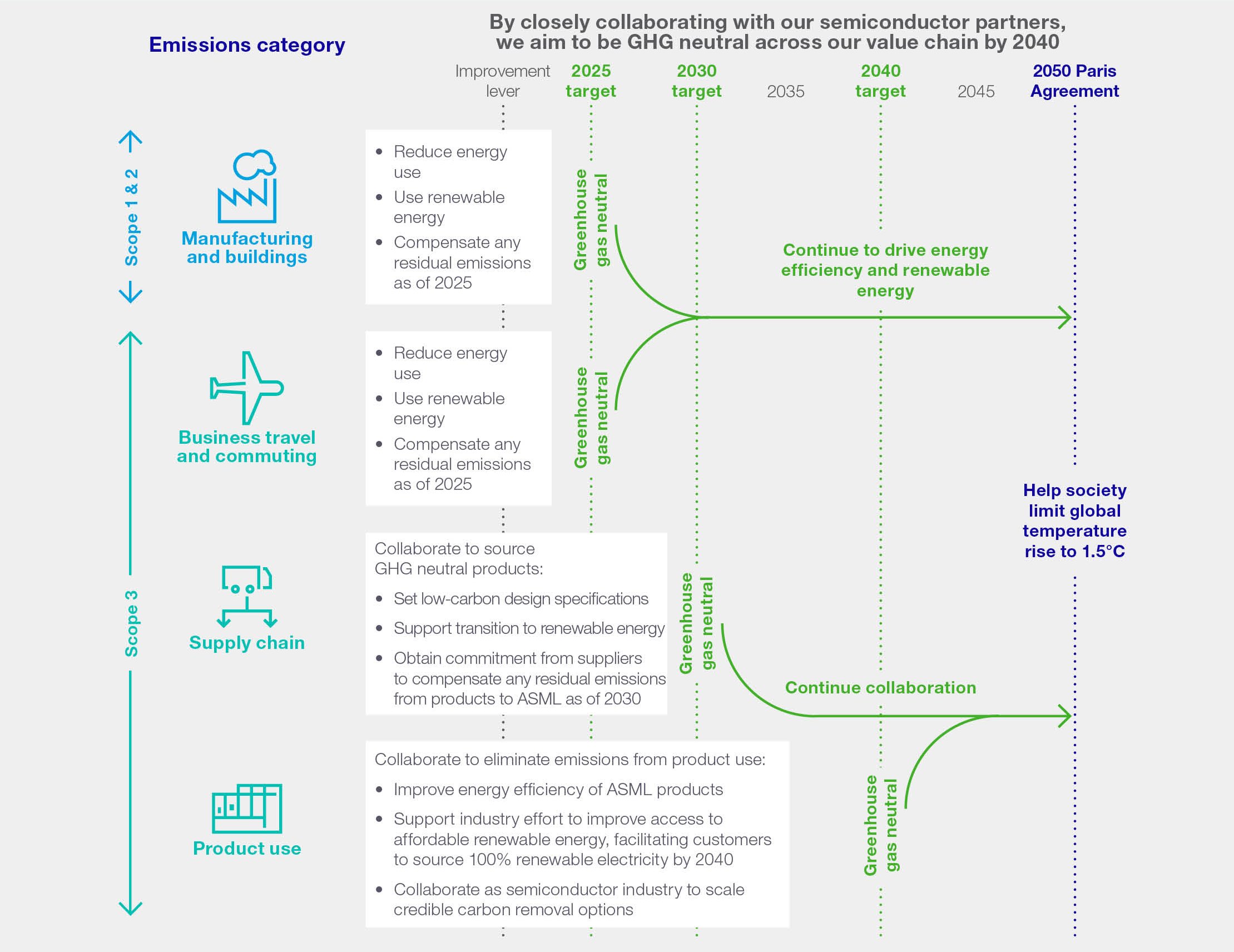
Illustration showing our journey to greenhouse gas neutrality in our value chain
Our supply chain (scope 3 upstream): Greenhouse gas neutral by 2030
We depend on our suppliers and other upstream value chain partners to work with us to jointly reduce our carbon footprint. Through our Sourcing & Procurement ESG sustainability program we’re actively engaging and collaborating with suppliers to drive further progress.
Product use by customers (scope 3 downstream): Greenhouse neutral by 2040
When we design new systems, we increasingly focus on reducing energy consumption and cost, while increasing performance and availability. The EUV light source is the key focus of our current engineering efforts, because it accounts for the largest portion of an EUV system’s total energy consumption.
2024 Annual Report
For more information, download our 2024 Annual Report for full details of targets and performance data.
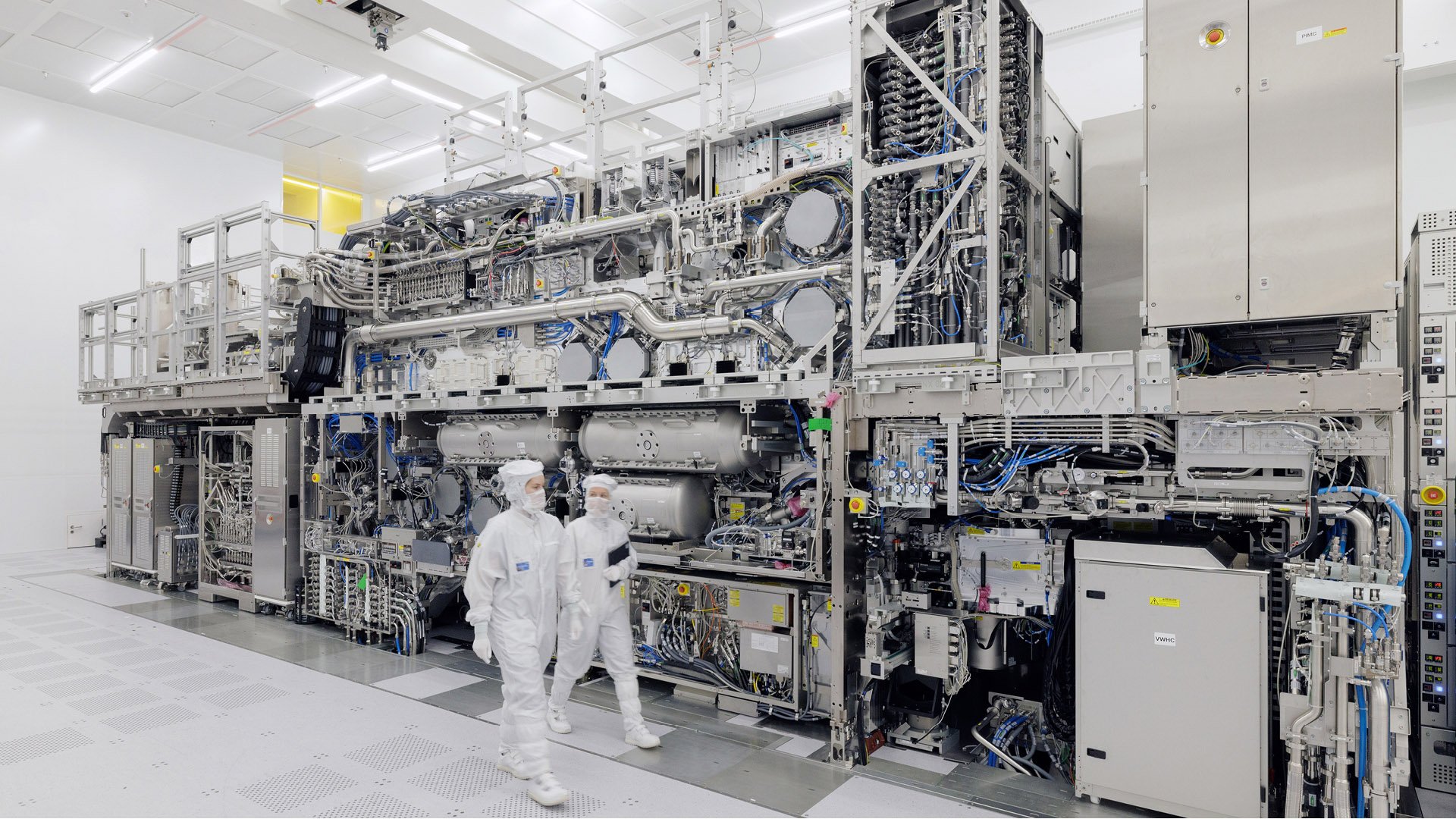
Our environmental management system
We have an environmental management system (EMS) in place to help us monitor our energy use and emissions, improve performance and enhance efficiency. The EMS is integrated into our Environmental, Health and Safety (EHS) management system operated by all ASML locations. This system was recertified for ISO 14001 (the standard for EMSs) for three years in 2023 and structured in accordance with ISO 45001 (the standard for occupational health and safety management systems) requirements.
Sustainability
Our key themes
